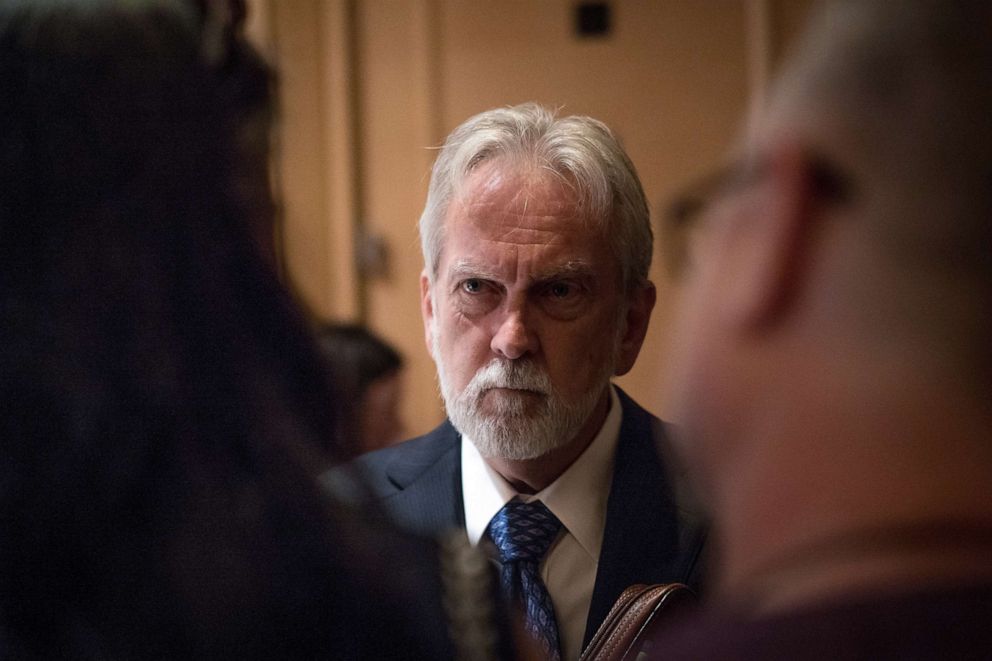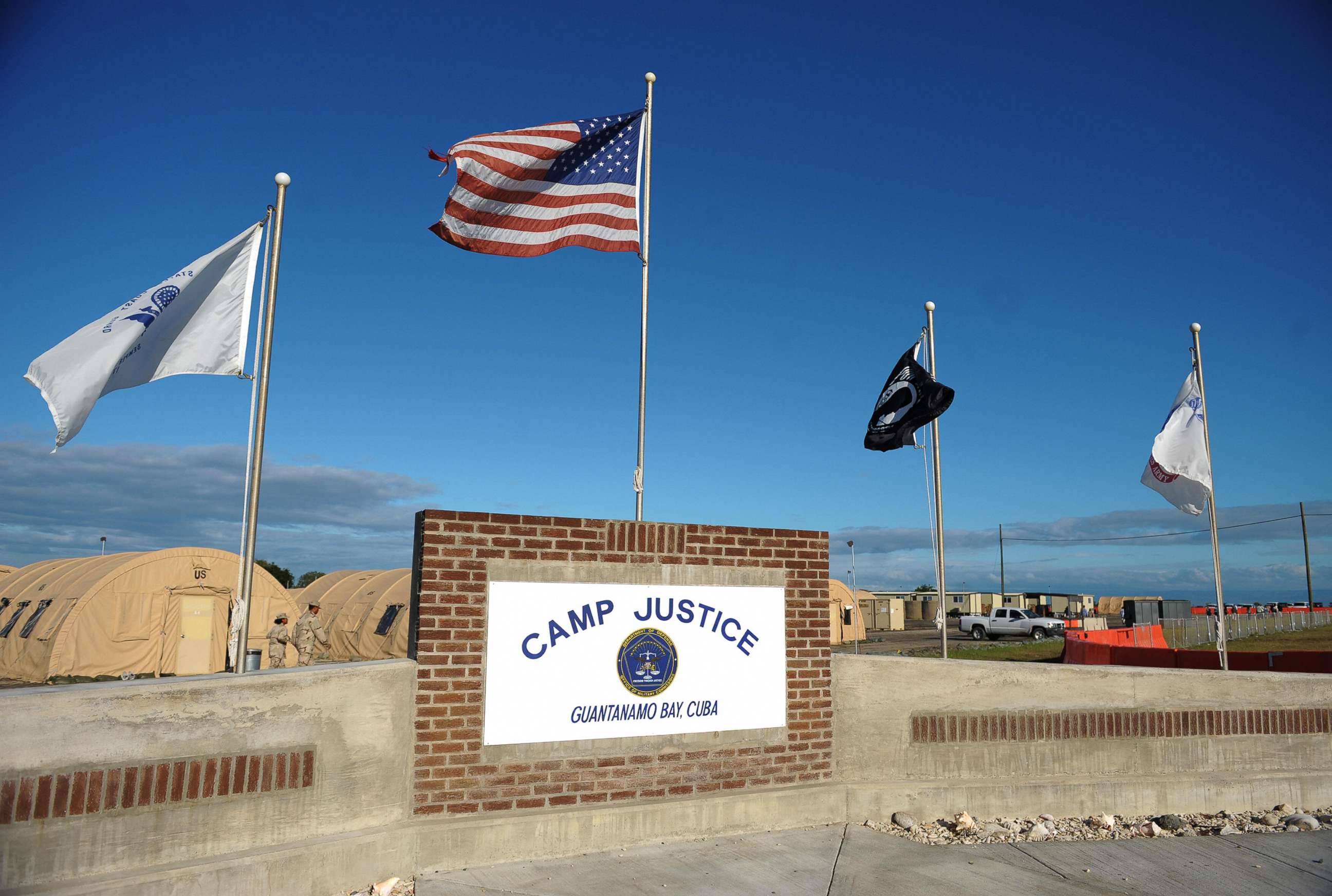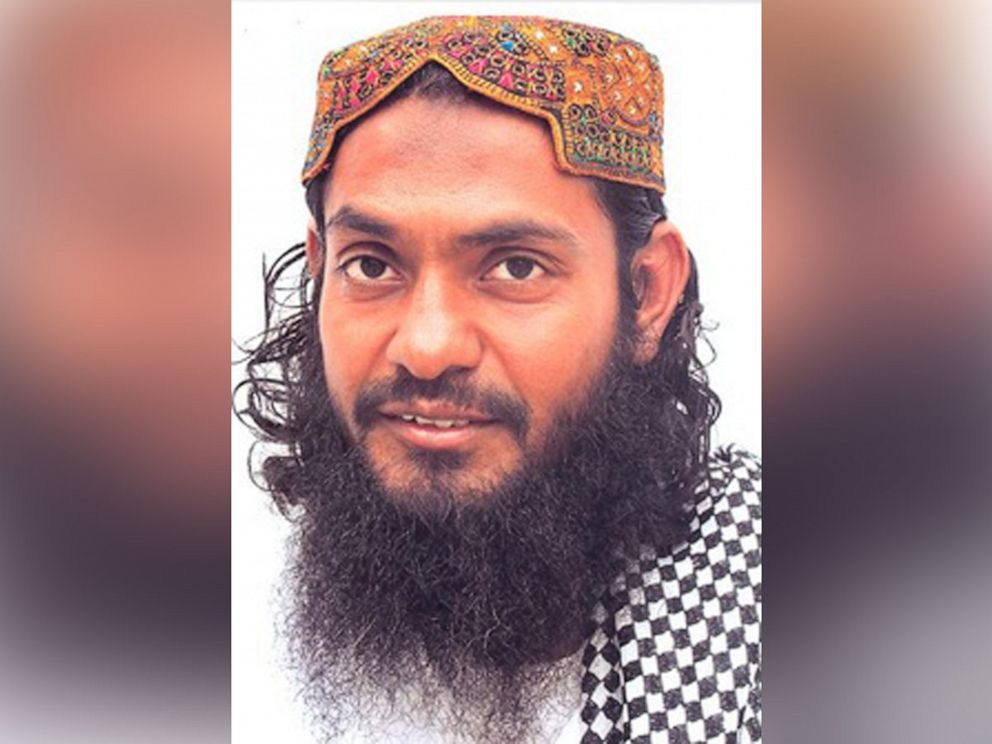Guantanamo detainees say historic interrogation was ‘torture,’ despite CIA psychologist’s denial
Dr. James Mitchell has given testimony at the 9/11 pretrial hearing.
Dr. James Mitchell, one of the pioneers behind the CIA’s controversial "enhanced interrogation" program, has testified this week at the pre-trial hearing of the suspects behind the 9/11 attacks.
During the proceedings at Guantanamo Bay’s Camp Justice, which will establish what evidence will be admissible in the eventual trial of the five accused 9/11 conspirators, Mitchell has defended his work. He said he "would get up today and do it again,” telling the military tribunal that he does not categorize the CIA’s program, which included waterboarding, sleep deprivation and forcing detainees to strip naked, as “torture” as “ that is a determination that has to be made by a judge in court,” according to the New York Times.
There have been a series of startling revelations in Mitchell’s testimony, including that CIA doctors were present during some interrogations, personally carried out by Mitchell, and that he once told accused 9/11 mastermind Khalid Sheikh Mohammed in March 2003 at one of the CIA’s detention sites, “I will cut your son’s throat,” the New York Times reported.

Mitchell, along with fellow psychologist Bruce Jessen, formed a company and were contracted by the CIA in 2005. Thereafter, "the CIA outsourced virtually all aspects of the [Detention and Interrogation] program" to Mitchell and Jessen, with the contractors receiving $81 million from the CIA by the time their contract was terminated in 2009, according to the 2014 Senate Select Committee Report on the CIA’s detention program.
Despite Mitchell’s reluctance to describe the program as “torture,” current Guantanamo detainees who were interrogated during Mitchell and Jessen’s tenure and advocates for prisoners’ rights take a different view.

The presence of doctors at interrogations “tells us that the CIA and the people that conducted the program acknowledged that the tactics were harmful and life-threatening,” Stephen Xenakis, a psychiatrist who has been advising attorneys for Gitmo inmates and is attending the hearings, told ABC News.
“Mitchell testified that he abided by guidance to ‘go right up to the line of what was legal, put their toes on it and lean forward.’ The doctors were responsible to revive the men if dying,” Xenakis said.
No detainees who experienced the CIA program were interviewed as part of the Senate’s 2014 report, according to Xenakis.
But two current Guantanamo detainees, Ahmad Rabbani and Tawfik al-Bihani, who were named in the Senate report, described what they experienced as “torture” in letters to their attorneys shared with ABC News.
Rabbani, an alleged ‘al-Qaida facilitator’ who has been held in Guantanamo without being charged with a crime since 2004, said he experienced “torture” in Afghanistan, where he was held before his transfer to Guantanamo.
“I was hung from an iron shackle with my toes barely able to touch the ground,” he wrote in a 2008 letter to his attorney, Clive Stafford-Smith, excerpts of which were shared with ABC News.
“All my weight was hung from the iron shackle until my hand was about to be cut off and the blood was rushing down to my feet … All my body parts were shaking because of cut off blood circulation and my pulled and beaten body began hurting all over. My head, nose and mouth started bleeding.”
“Whilst the Americans may call these enhanced interrogation techniques, I prefer to be honest about what I suffered,” he wrote. “It was torture, pure and simple.”

Rabbani is one of 17 named in the Senate report, which states that they were subjected to “enhanced interrogation” techniques without the approval of CIA headquarters.
Another current Guantanamo inmate named in the report as part of that group is Tawfik al-Bihani, who has been held in the facility since 2003 although he was cleared for release in 2010. He said he was subjected to “extremely dark and oppressive conditions” while held at detention site COBALT in Afghanistan. Cobalt is the codename for one of the most notorious CIA detention sites, described by one official as a “dungeon” in the Senate report.
The Senate report, which confirms al-Bihani was taken to COBALT, found that detainees at the facility “were kept in complete darkness and constantly shackled in isolated cells with loud noise or music and only a bucket to use for human waste.” The report said that al-Bihani was “subjected to 72 hours of sleep deprivation” between his arrival at COBALT and an interrogation in October 2002.
According to a 2010 letter to his previous attorney, shared with ABC News by his current counsel, Shelby Sullivan-Bennis, al-Bihani said that he was “tied to the wall for almost ten days.”
“The irritating music 24 hours a day was very loud and hard banging on the door,” he said. “When I used to go for interrogations, I was unable to walk because of the restraints on my legs and tightness on my feet. I would fall down to the ground and scream that I cannot walk. They would pick me up from the ground and I would walk with them while they are hitting me on the way to the interrogation until I would bleed from my feet.”
When he returned to his cell from interrogations, he says he would be sprinkled with cold water and restrained in stress positions for “one month and ten days,” the letter said.
Dr. Vincent Iacopino, advisory council member and former medical director at Physicians for Human Rights, said in a statement to ABC News that Mitchell and Jessen were “perpetrators of torture” and “should not be considered reliable fact witnesses.”
“Psychologists, like doctors, commit to ‘do no harm,’” he told ABC News. “Mitchell and Jessen inflicted tremendous harm through the U.S. torture program they designed and executed. They should be held accountable for their heinous actions.
“The torture that Mitchell and Jessen continue to defend jeopardizes the effective legal prosecutions of suspected terrorists, including those responsible for September 11,” he added.
Mitchell's testimony has now concluded, and Jessen is also expected to be questioned at the pretrial hearings.
Mitchell has repeatedly defended his record in the face of criticism from human rights groups and the American Psychological Association, who criticized Mitchell and Jessen for "leaving a stain on the discipline of psychology" for their roles in the CIA program.
"To protect American lives outweighed the feelings of discomfort of terrorists who voluntarily took up arms against us," he said on the first day of his testimony, according to the New York Times. "To me it just seemed like it would be dereliction of my moral responsibilities."
The war crimes trial of the 9/11 defendants is scheduled to begin in early 2021.
Mitchell and Jessen settled a suit brought by three detainees (including one who died) in Washington state in 2015. The terms of the settlement were confidential, but their lawyer, James Smith, said they were “public servants whose actions in regard to the interrogation of suspected terrorists were authorized by the U.S. government, legal and done in an effort to protect innocent lives,” according to the New York Times.
In a joint statement, the men called the abuse the detainees suffered “regrettable” and that it “occurred without their knowledge or consent.”
The CIA declined comment beyond what was publicly available about the program on the agency's website.
Editor’s note: This article has been updated to reflect that al-Bihani was cleared for release in 2010.




